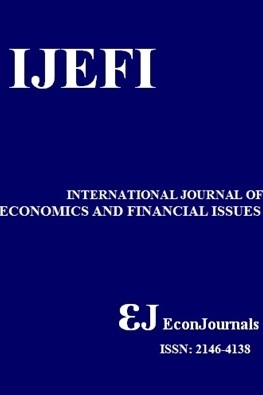The Corporate Social Responsibility and Firms’ Financial Performance: Evidence from Financial Sector of Pakistan
The Corporate Social Responsibility and Firms’ Financial Performance: Evidence from Financial Sector of Pakistan
Corporate social responsibility (CSR), financial performance, financial sector, Pooled regression,
- Başlangıç: 2011
- Yayıncı: İlhan ÖZTÜRK
Richardson Kojo EDEME, Evelyn Osaretin OGBEİDE, A. İfelunini INNOCENT, Sam UGWU
Trade Policies, Exchange Rate and Developing Country’s Real Sector Export Performance
Richardson Kojo EDEME, Nelson C. NKALU, Chisom EMECHETA, Sam UGWU
Corporate Regulation of Unethical Practices: Assessment of Nigeria’s Commercial Banking Industry
Olabode A. OYEWUNMİ, Olamide OLUSANMİ, Olusola J. OLUJOBİ, Folashade ADEGBOYE
Bashar K. Abu Khalaf, Bara Al-Nees, Lilana Sukkari
Sutte Indicator: A Technical Indicator in Stock Market
Joshua Adewale T. OJO, Folasade Bosede ADEGBOYE, Felicia Omowunmi OLOKOYO
Bank Specific and Macroeconomic Determinants of Bank Profitability: Evidence from Turkey
Mehmet Sabri TOPAK, Nimet Hülya TALU
Long-run Trend and dDeterminants ofTterms of Trade of Iran
Saman YOUSEFVAND, Reza NAJARZADEH, Hasan HEİDARİ, Lotfali AGHELİ
